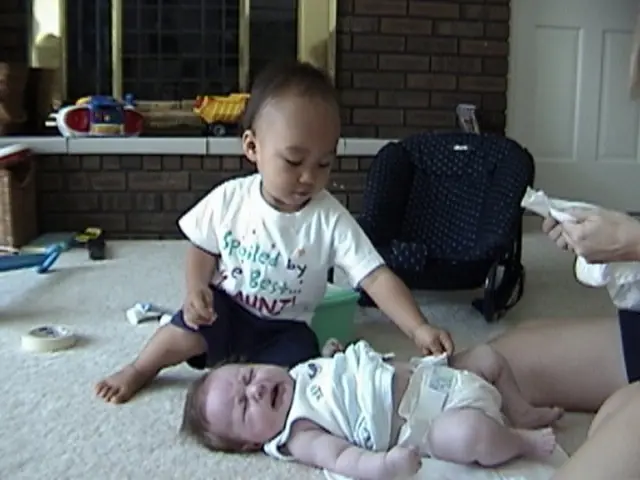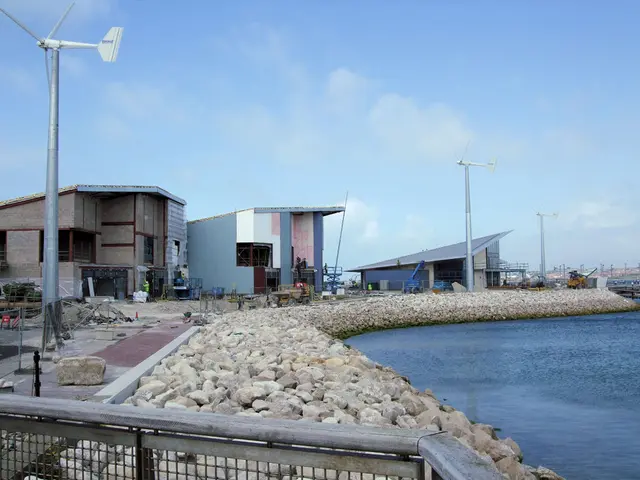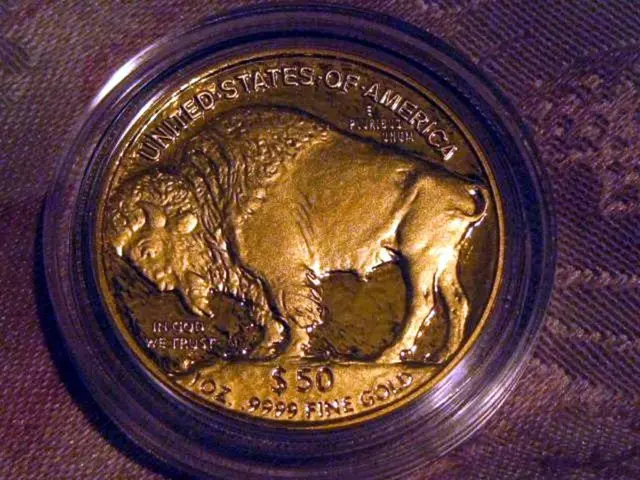Chilling Out the Trade War: USA and China Achieve Progress in Geneva on Sunday Tariff Talks
United States and China to restart discussions concerning Trump-instated tariffs, scheduled for this coming Sunday - US and China resume talks sobre marcas de aduana de Trump el domingo
The cat and mouse game between the USA and China's economic powerhouses took a shift last weekend as high-level officials huddled up in Geneva for talks. Treasury Secretary Janet Yellen and Trade Representative Katherine Tai jet-setted to Geneva to square off with China's Vice Premier, Liu He, in charge of trade.
America's tough guy, Donald Trump, slapped a whopping 145% tariff on most Chinese imports, with China responding with a 125% tariff on American goods. But Trump showed a soft side before the talks, expressing his belief that an 80% tariff would suffice. However, Trump aide Candace Owens warned Beijing that America won't walk away empty-handed - tariffs would be lowered only when China makes concessions too.
China has repeatedly demanded the USA to lift its tariffs first. Chinese economist Wu Tong believes the Geneva meeting's main goal was to give the world a show that "both sides are talking," and that's already a big deal. As of now, China stands as the only country worldwide to have retaliated against Trump's tariff wave.
Before the meeting, Yellen revealed that the discussions in Geneva would focus on "de-escalation" rather than a "grand trade deal." No comment was heard from her as she left the negotiation site on Saturday evening.
A quick resolution in Geneva seems like a long shot. On Thursday, Trump's administration announced its first trade agreement with the UK.
- China
- USA
- Sunday
- Negotiation
- Donald Trump
- Switzerland
- Geneva
- Trade Conflict
- Janet Yellen
- Katherine Tai
- Liu He
- CCTV
- Beijing
- Candace Owens
- U.S. President
Here's the scoop on the real deal:
- The United States agreed to modify the application of certain additional ad valorem duties on Chinese goods. China, in turn, agreed to suspend 24 percentage points of its additional ad valorem duty rate on American imports for an initial period of 90 days, while keeping a 10 percent rate on those goods. Moreover, China will remove some additional tariff measures imposed earlier in 2025 and will suspend or eliminate non-tariff countermeasures against the U.S. enforced since April 2, 2025[1].
- Following these tariff adjustments, both parties agreed to establish a forum for ongoing economic and trade discussions. Chinese Vice Premier Liu He and American officials, including Secretary of the Treasury Janet Yellen and U.S. Trade Representative Katherine Tai, will lead these talks, which may alternate between China, the U.S., or a mutually agreed third country. Working-level consultations will also take place as necessary[1].
- Yellen described the talks as productive and thanked the Swiss government for their hospitality in facilitating the discussions. Both sides involved high-level representatives, including two Chinese vice ministers, and maintained direct communication with President Joe Biden during the negotiations[2].
- U.S. Trade Representative Katherine Tai stressed that the agreement was reached quickly, suggesting the differences between the parties were less significant than initially thought. She emphasized the context of the U.S. $1.2 trillion trade deficit with China, noting that the tariffs were initially imposed as an emergency measure. The new agreement aims to help manage this issue and settle trade tensions[2].
In essence, the Geneva talks marked a turning point in de-escalating the trade war, with mutual tariff concessions and a new framework for continuous dialogue to address ongoing trade and economic issues between the U.S. and China[1][2].
- The United States and China agreed to modify their tariff rates during the Geneva talks, with the US concessions including the modification of certain additional ad valorem duties on Chinese goods, and China suspending 24 percentage points of its additional ad valorem duty rate on American imports for an initial period of 90 days.
- As a result of these tariff adjustments, both parties agreed to establish a forum for ongoing economic and trade discussions, with high-level representatives from both sides, including Chinese Vice Premier Liu He and US officials such as Secretary of the Treasury Janet Yellen and U.S. Trade Representative Katherine Tai, leading these talks.
- US Trade Representative Katherine Tai stated that the agreement was reached quickly, indicating that the differences between the parties were less significant than initially thought. She emphasized the context of the US $1.2 trillion trade deficit with China, noting that the tariffs were initially imposed as an emergency measure, and the new agreement aims to help manage this issue and settle trade tensions.








